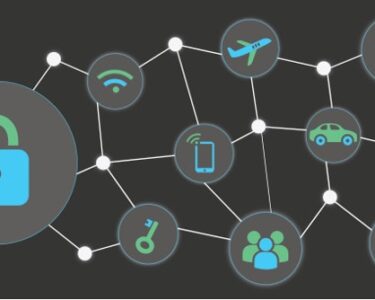
Cybersecurity Lifestyle Practices: Securing Your Digital Footprint
In today’s increasingly digital world, maintaining a secure online presence is crucial for personal and financial protection. By adopting cybersecurity best practices, individuals can minimize their exposure to cyberattacks and safeguard their sensitive data. Here are some essential cybersecurity lifestyle practices:
Create Strong Passwords and Use a Password Manager:
Weak passwords are a major vulnerability for cybercriminals. Use strong passwords that are at least 12 characters long and include a mix of upper and lower case letters, numbers, and symbols. Avoid using personal information or common words. Consider using a password manager to securely store and manage multiple passwords.
Enable Two-Factor Authentication (2FA):
2FA adds an extra layer of security to your online accounts. When enabled, it requires you to provide a second form of identification, such as a one-time code sent to your phone, in addition to your password. This makes it much harder for attackers to gain unauthorized access.
Be Vigilant About Phishing Scams:
Phishing emails and text messages are designed to trick you into providing sensitive information, such as login credentials or financial details. Be wary of messages from unknown senders or that contain suspicious links or attachments. Never click on links or open attachments you’re not expecting.
Use Secure Wi-Fi Connections:
Public Wi-Fi networks can be vulnerable to eavesdropping attacks. Avoid accessing sensitive information or performing financial transactions while connected to public Wi-Fi. If possible, use a personal hotspot or VPN (Virtual Private Network) for added security.
Keep Software and Apps Up-to-Date:
Software updates often include security patches that fix vulnerabilities. Keep your operating system, apps, and software applications up-to-date to minimize the risk of exploitation.
Be Cautious with Social Media:
Be mindful of what you post on social media. Avoid sharing personal information, such as your address or birthday, that could be used for identity theft. Check your privacy settings and limit who can see your posts and personal information.
Use a Virtual Keyboard for Sensitive Input:
Some keyloggers can record your keystrokes, including passwords and financial information. Use a virtual keyboard when entering sensitive data to prevent this type of attack.
Beware of Third-Party App Permissions:
When installing apps, be cautious about the permissions you grant. Only grant permissions that are necessary for the app to function properly. Avoid installing apps from unknown sources or with excessive permissions.
Monitor Your Credit Reports:
Keep an eye on your credit reports for any suspicious activity. Identity theft can lead to unauthorized purchases or financial fraud. Contact the relevant authorities immediately if you notice any irregularities.
Stay Informed About Cybersecurity Threats:
Keep updated on the latest cybersecurity threats and scams. Read reputable sources and subscribe to security advisories to stay ahead of potential risks.
By incorporating these cybersecurity lifestyle practices into your daily routine, you can significantly enhance your digital security and protect your privacy. Remember, cybersecurity is an ongoing process, and it’s essential to remain vigilant and proactive to safeguard your online presence in today’s ever-evolving digital landscape.


